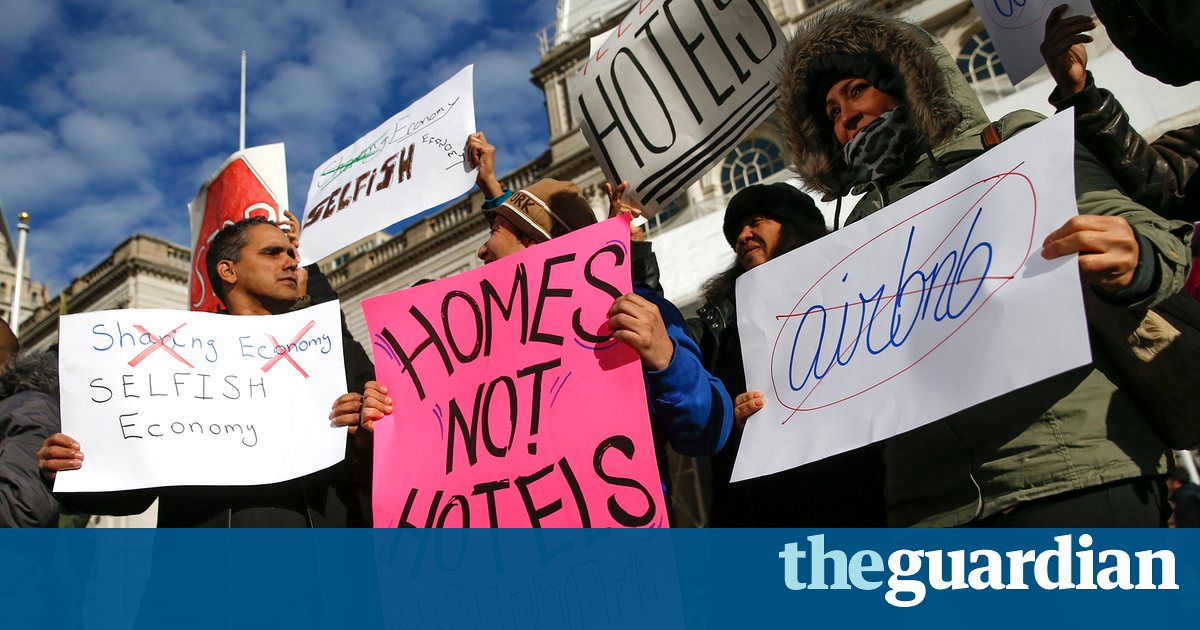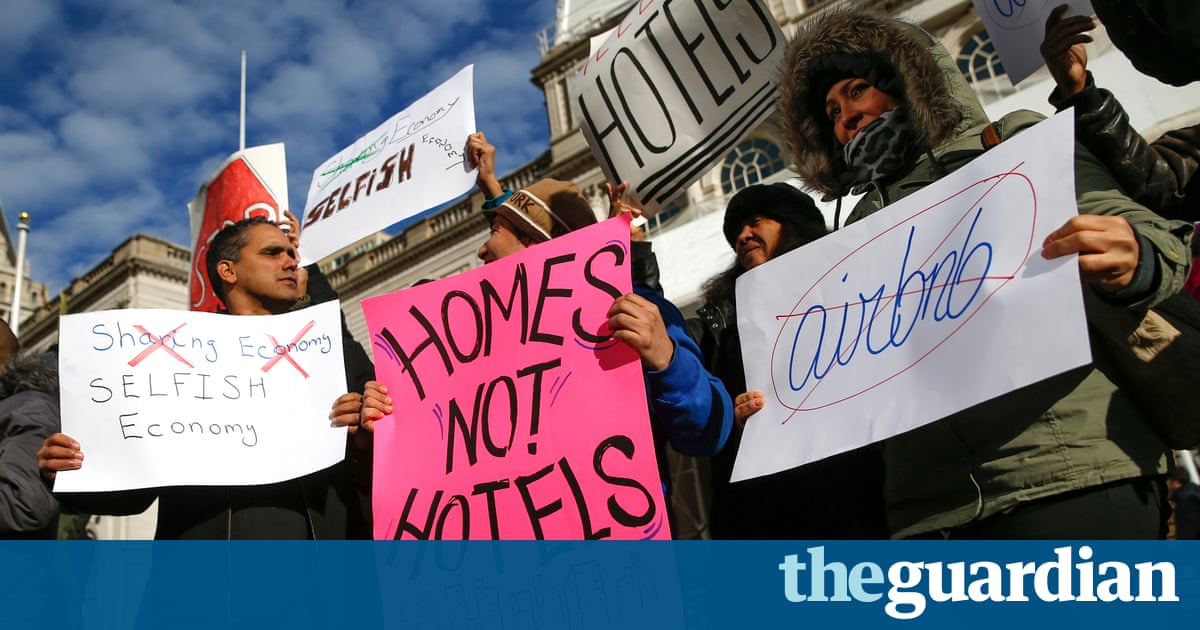Airbnb is driving up the rent in your urban neighborhood | Alexander Zaitchik

Elizabeth Warren is right. Unless this trend reverses, our cities will become cheap places to stay for tourists and unaffordable for the rest of us

Elizabeth Warren has long been calling for a federal probe into the short-term property rental industry a shot aimed square at the upside-down-heart logo of Airbnb. This Tyrannosaurus Disruptus is swinging a $30bn tail through rental markets from Venice, California, to Venice, Italy. Now, people are starting to pay attention.
Warrens call has been taken up by officials and civic leaders from a dozen US cities, who wrote a letter saying they want the Federal Trade Commission to take up the charge. Its about time. Cities are struggling to address urgent shortages of affordable housing, the letter said, and there is evidence that commercial interests in the [short-term rental] industry are removing residential units from housing markets and thereby contributing to even higher rents.
One of the best places to observe the impact of Airbnb is New Orleans, where next week the city council will vote on a bill to regulate the short-term rental industry. The industry has transformed neighborhoods throughout the Crescent City, and debate over the subject is intense, bordering on bloodsport.
In advance of the vote, Airbnb has unleashed a crude $1m local ad blitz attempting to humanize its business model. One of the 60-second commercials opens with a local Airbnb host named Reneia. I love rescuing animals, she says over images of her playing with shelter dogs. And [hosting] gives me an additional income to help these animals.
Its almost enough to make your question your support for regulation Does this mean I hate puppies? but then you realize that owner-occupied rentals like Reneias are not affected by the proposed regulations. The law narrowly targets rentals of entire unoccupied homes (which would be limited to 30 rental days a year). Reneia and her rescues would be just fine.
A more fair Airbnb ad would profile absentee landlords and property managers laying on the beach or sitting at their desks. But their stories might leave audiences cold, and anyway the industry has no interest in reminding the public of these people.
It is they, not the waitresses with spare rooms and rescue animals, who have generated widespread anger in New Orleans and other cities across the country. Airbnbs vast publicity machine is in fact geared toward obscuring the existence of the faceless commercial lessors who have fueled much of the companys rapid growth.
I gained a front-row seat to this phenomenon when I moved to New Orleans in early 2013. Since then, Ive seen entire blocks in the Bywater neighborhood converted to short-term rentals, most operated by absentee landlords. Vacancies in the area are few; rents have gone up. Long-term neighbors have been replaced by flows of vacationing strangers. You cant blame Airbnb for all of this, but its past due we figured out what damage the industry has done and how to roll it back.
This is what residents from across New Orleans have been calling for in recent protests like a mock funeral procession to city hall, featuring coffins marked affordable neighborhoods and real neighbors.
But its not just activists who are worried public officials across the country have been slowly collecting binders of data on Airbnbs impact on cities. Two years ago, New Yorks attorney general office released a study showing that commercial lessors operate a third of Airbnb rentals in the city, most in violation of zoning and tax law.
And last year, the Los Angeles Alliance for a New Economy published a report estimating that close to 90% of Airbnbs LA revenue was derived from absentee landlords and leasing companies. They estimate Airbnb keeps more than 7,000 units off the rental market equal to seven years of affordable housing construction.
Unless this trend is reversed, our urban neighborhoods will become fun, cheap places to stay in if you are a tourist and unaffordable hostel zones for people who used to live there.